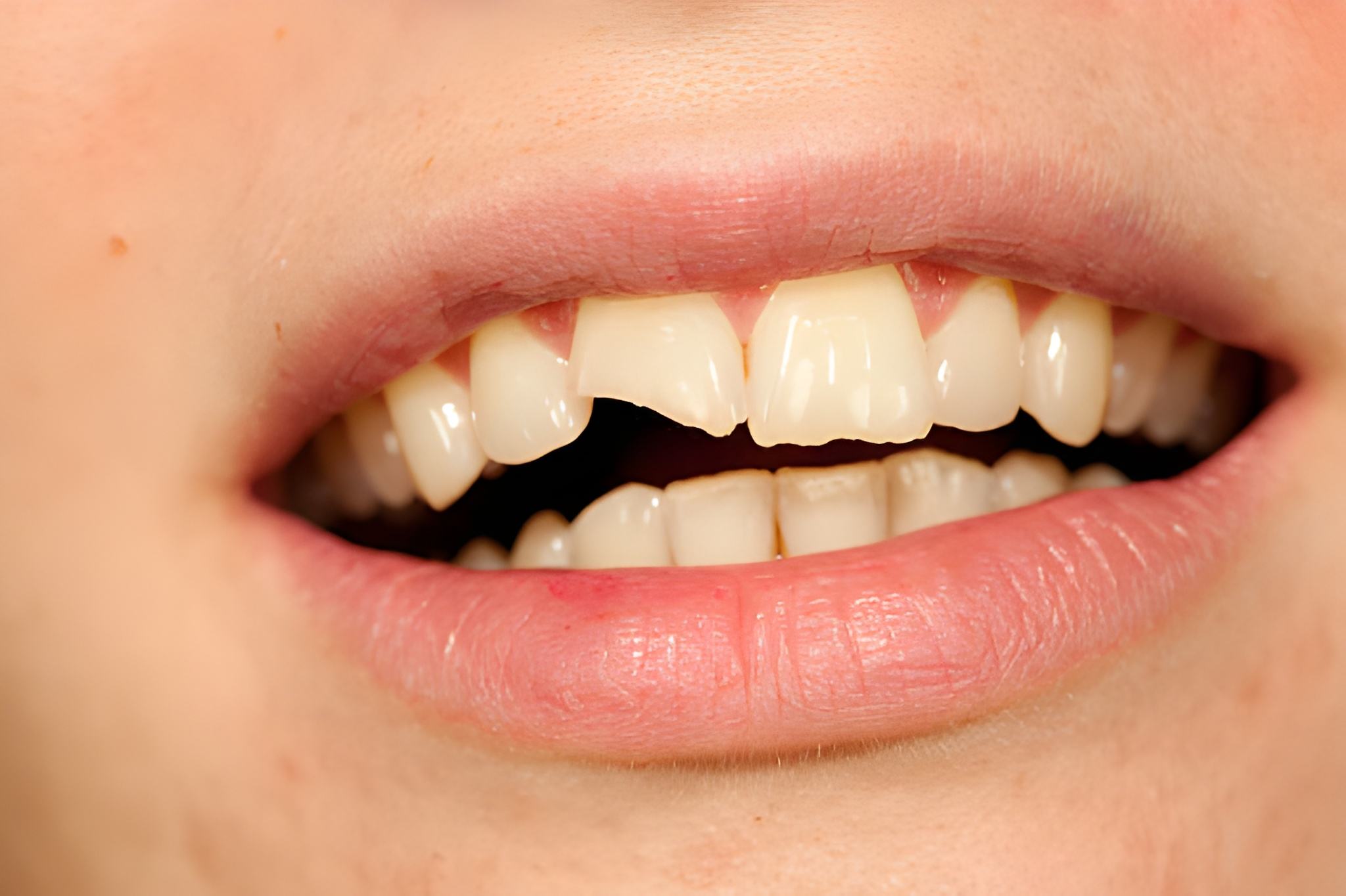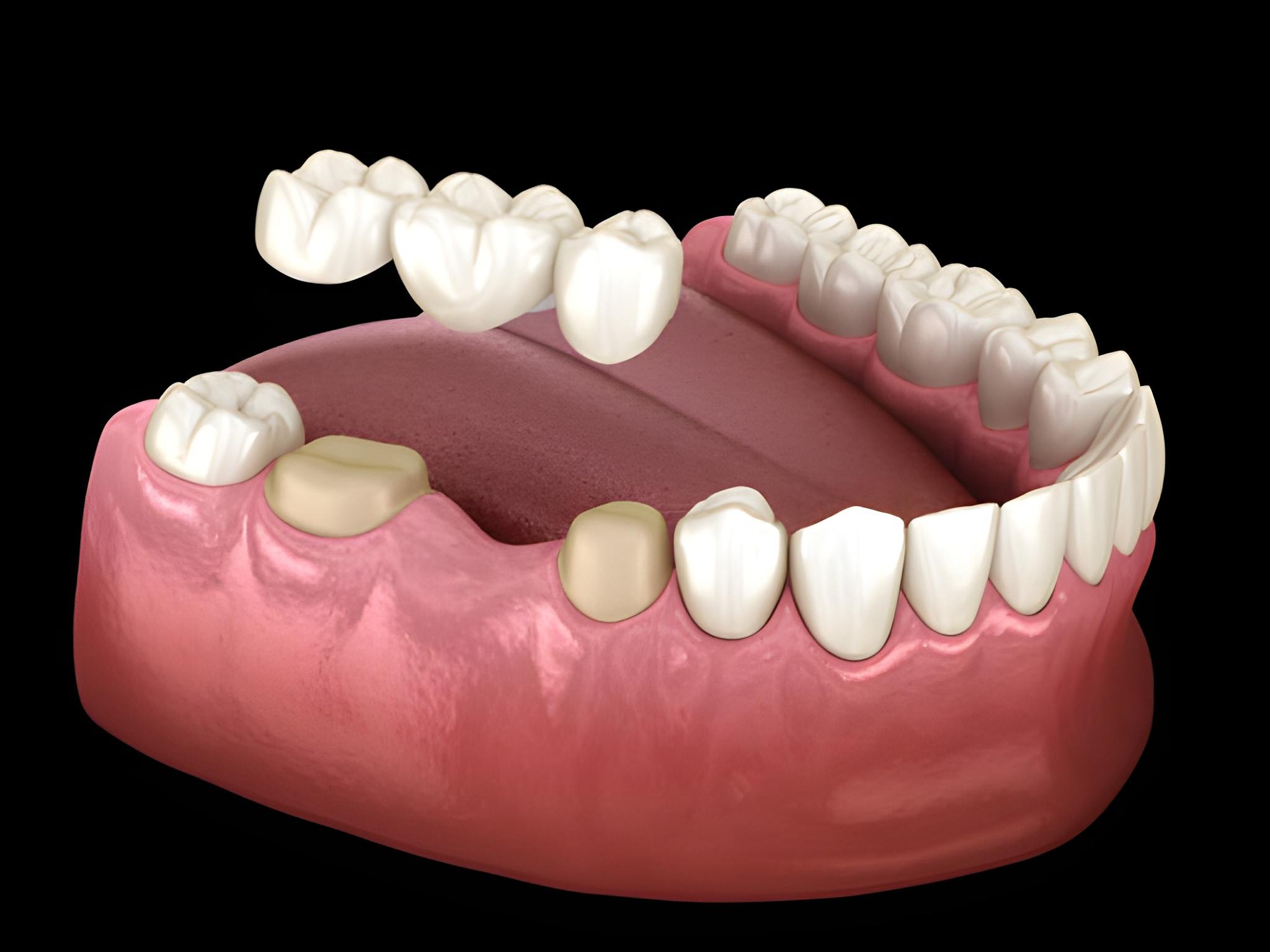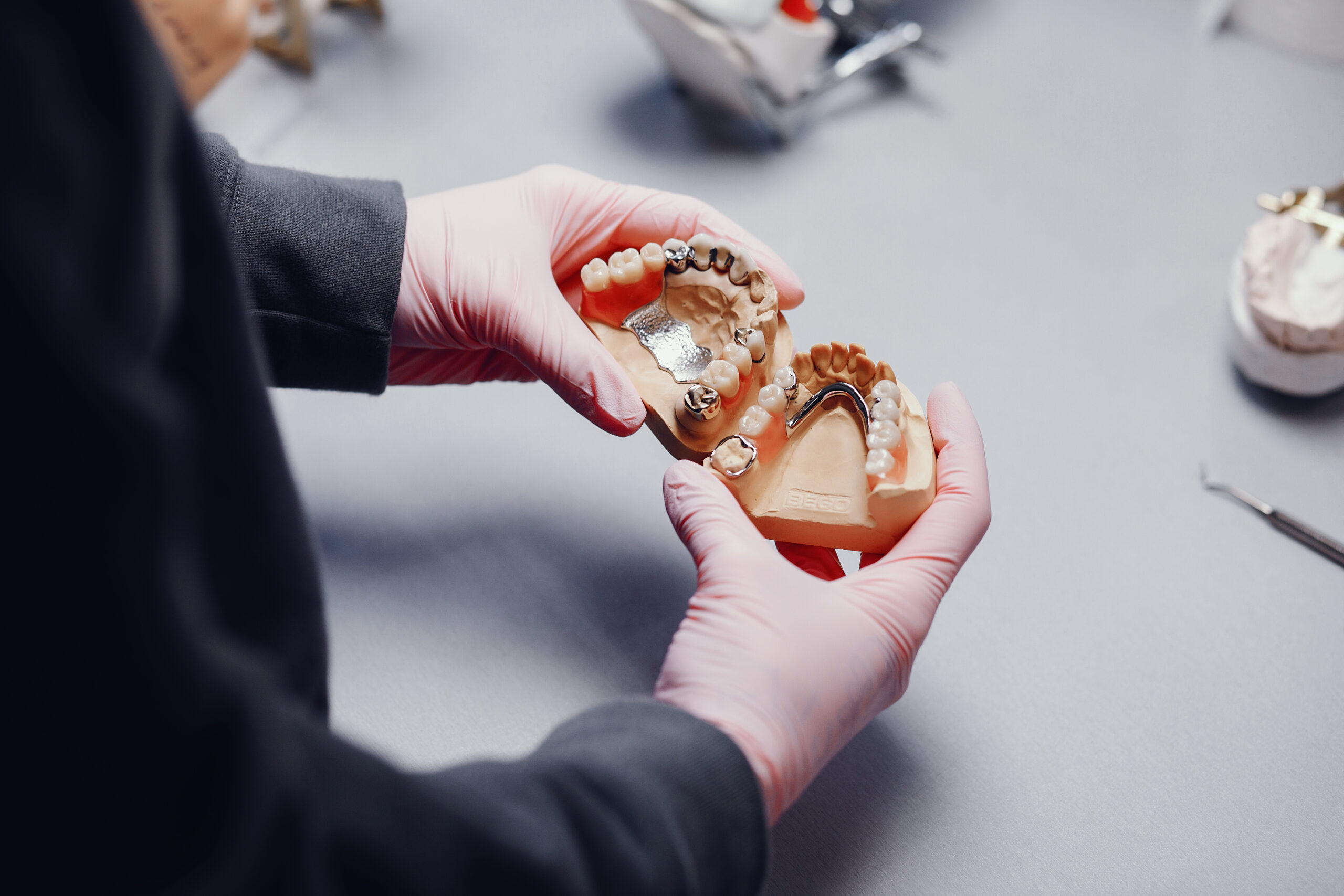Dentures are removable oral appliances designed to restore or replace missing teeth, thereby improving their function and appearance.
According to the American College of Prosthodontists, over 36 million Americans are edentulous, and approximately 90% of them wear dentures. Choosing the right type of denture is essential, not just for comfort, but for your overall oral health. The right fit can support your jaw, prevent further tooth loss, and improve quality of life.
In this article, we’ll break down the key differences between full and partial dentures and cover topics like:
- Who needs full vs. partial dentures
- How each type is fitted and maintained
- Comfort, appearance, and cost considerations
- When to speak with your dentist about denture options
Let’s take the confusion out of dentures and help you make the best choice for your smile.
What Are Full Dentures?
Full dentures, also known as complete dentures, are removable dental appliances designed to replace all the teeth in either the upper or lower jaw, or both. They help restore your ability to chew, speak clearly, and smile with confidence when natural teeth are missing.
When Are Full Dentures Recommended?
Full dentures are typically recommended when:
- All teeth in the upper or lower arch have been lost or removed.
- A patient has severe decay, gum disease, or injury that makes saving natural teeth impossible.
- Other restorative options, such as implants or bridges, may not be suitable due to health or budget concerns.
If you’re considering full dentures in Bloomfield, NM, a dental professional will first evaluate your oral health and discuss the best option based on your needs.
How Are They Made and Fitted?
The process starts with impressions of your gums, followed by custom design and fitting:
- A dental lab creates the dentures to match the shape of your mouth.
- Your dentist ensures a snug, comfortable fit and may adjust them over time.
Materials and Function
Full dentures are usually made from:
- Acrylic resin (for the base and teeth)
- Sometimes porcelain (for a more natural appearance)
They rest on your gums and create suction to stay in place. With proper care, they function well for everyday use, such as eating and speaking.
What Are Partial Dentures?
Partial dentures are designed to replace one or more missing teeth. They’re partial in design and help restore your ability to chew, speak, and smile with confidence while also preventing the remaining teeth from shifting out of place.
When Are Partial Dentures Recommended?
Partial dentures are usually recommended when:
- You are missing a few teeth, but still have healthy natural teeth remaining.
- You want an affordable and non-invasive solution to fill in gaps in your smile.
- You are looking for a removable alternative to implants or fixed bridges.
Design and How They Work
Partial dentures in Bloomfield, NM, are typically made with:
- A metal framework for strength or an acrylic base that mimics the appearance of your gums.
- Clasps or precision attachments that anchor onto your existing teeth for support and stability.
By attaching securely to your natural teeth, partial dentures help restore both the function and appearance of your smile, so you can eat, speak, and enjoy life without worry.
Key Differences Between Full and Partial Dentures
Dentures are an excellent solution for replacing missing teeth, but not all dentures are the same. Let’s break down the key differences between full and partial dentures in a clear, easy-to-follow way:
1. Purpose
- Complete dentures are a great option if you’re missing teeth in the upper and lower jaw.
- Partial dentures are ideal when only a few teeth are missing and you still have some healthy natural teeth left.
2. Structure and Materials
- Full dentures are made of a complete acrylic base that sits on your gums.
- Partial dentures have a metal or acrylic framework with clasps that secure them in place, gripping your natural teeth for support.
- Both can have natural-looking acrylic or porcelain teeth.
3. Fit and Comfort
- Full dentures can take time to get used to, especially on the lower jaw.
- Partial dentures often feel more stable because they attach to your existing teeth.
4. Maintenance and Cleaning
- Both types need daily cleaning and should be removed at night.
- Partial dentures require extra care to prevent damage to the natural teeth they anchor to.
5. Longevity and Replacement
- With good care, both types can last 5 to 10 years.
- However, partial dentures may need more frequent adjustments due to changes in your natural teeth.
6. Aesthetic and Functional Results
- Both restore your smile and help with chewing and speaking.
- Full dentures offer a complete smile makeover.
Factors to Consider When Choosing Between the Two
When deciding between dental implants and dentures in Bloomfield, NM, it’s essential to consider several key factors that can help you make the best choice for your smile and lifestyle.
1. Oral Health Condition & Number of Missing Teeth
If you’re missing several or all of your teeth, dentures might be more practical. But if you only have one or two missing teeth and healthy surrounding teeth, implants could be a better option.
2. Budget & Insurance
Dentures are generally more affordable upfront, while implants tend to cost more but last longer. Check your dental insurance; some plans cover dentures but not implants.
3. Jawbone & Gum Health
Implants require a strong jawbone for support. If you have experienced bone loss or have gum issues, dentures may be recommended unless bone grafting is an option.
4. Professional Advice
Always consult a trusted local dentist in Bloomfield, NM who specializes in dentures. They’ll evaluate your oral health and guide you toward the most suitable and lasting solution.
Denture Care Tips for Bloomfield Residents
Caring for your dentures properly helps them last longer and keeps your mouth healthy. Whether you have full or partial dentures, here are some easy tips to follow:
1. Clean Daily
- Gently brush your dentures every day with a soft denture brush.
- Use a non-abrasive cleaner, not regular toothpaste.
- Rinse them after meals to remove food particles.
2. Store Them Safely
- Soak your dentures in a denture solution or water when not in use.
- Never let them dry out; they can warp.
3. Visit Your Dentist Regularly
- Regular checkups ensure your dentures fit well and your gums stay healthy.
- Your dentist can spot and fix small issues before they turn into bigger ones.
Takeaway
- Complete dentures are designed to replace your missing teeth, while partial dentures are designed to fill gaps while you have remaining natural teeth.
- Partial dentures are more affordable and stable; full dentures offer a full smile makeover.
- Proper care and regular dental visits are key to long-lasting, comfortable dentures.
- Ready to change the way you smile? Connect with our Sundance Dental experts today!





